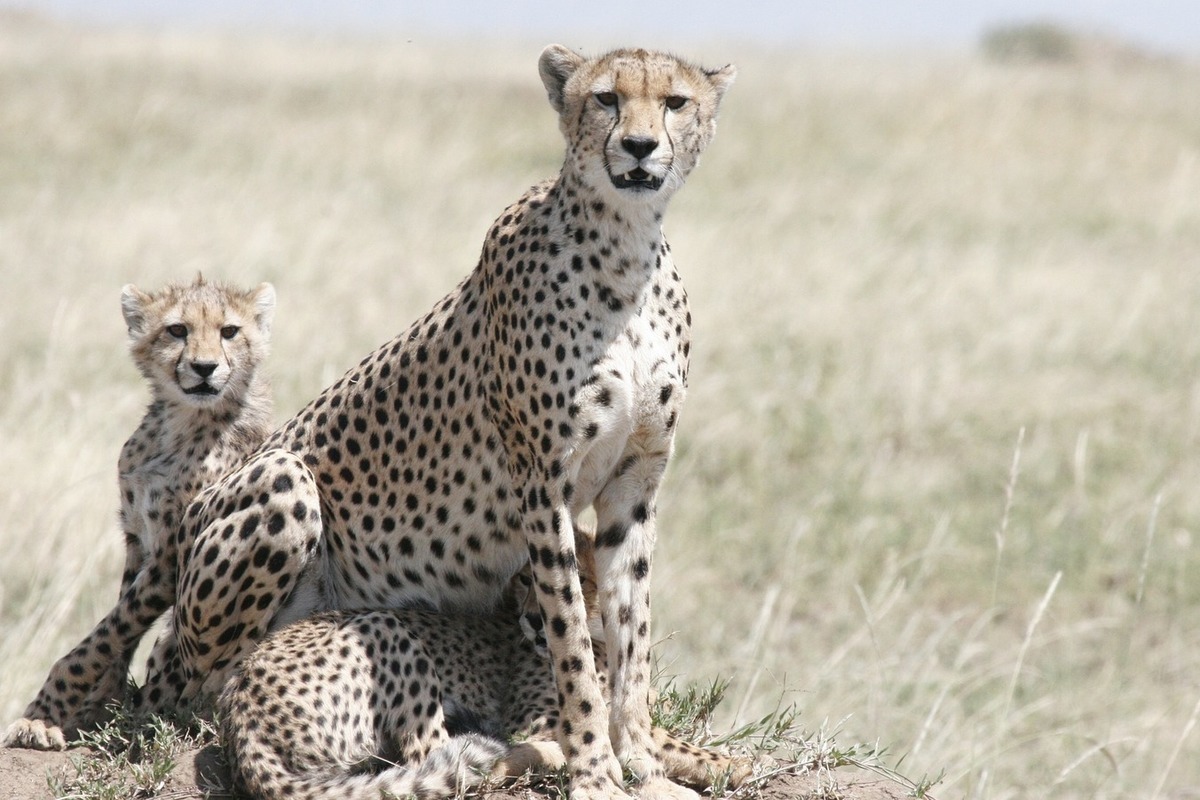Scientists have predicted the final extinction of cheetahs due to climate change
[ad_1]

The big cat breaks the main rule of hunting in Africa
A new study has found that due to global climate change, cheetahs, typically daytime hunters, are shifting their activity to dawn and dusk during hot weather. Rising global temperatures and abnormal weather could lead to the extinction of at least one, and eventually several species of big cats. Changes in predator activity can cause conflict with night hunters – lions and leopards.
In a study published on November 8 in the Proceedings of the Royal Society, the British Academy of Sciences sounds the alarm that cheetahs may become extinct due to climate change. These cats, whose population has declined by 90 percent over the past hundred years, are beginning to change their daily routine, including their hunting patterns. This creates potential conflicts between cheetahs and nocturnal predators such as lions and leopards, the study authors said, according to the Associated Press.
Until this study, it had not been clearly proven that climate change and abnormal temperatures could affect animals. But now University of Washington biologist and co-author Briana Abrahams says the issues are connected and may be forcing behavioral patterns in large predator species.
The main difference in the diet of big cats is that cheetahs eat only fresh meat, but lions and leopards sometimes cheat and snatch food from smaller predators. Behavioral biologist Betona Wachter, who specializes in cheetah research at the Leibniz Institute for Zoo and Wildlife Research, says that lions and leopards usually kill their prey themselves, but when faced with a cheetah hunting, they prefer not to interfere with it and accept it. The scientists also note that “cheetahs will not fight larger cats, they will simply walk away.”
“These climate changes could become really critical if we look into the future – this part of Africa where cheetahs live, Botswana, Namibia and Zambia are predicted to become much warmer,” Wachter said.
Hunting at different times of day is a long-standing strategy to reduce encounters between the multiple predator species that share the mixed savanna and forested landscape of northern Botswana. This is a basic rule in Africa, which can be violated by cheetahs due to their activity at the wrong time.
The study found that on the hottest days, when maximum daily temperatures soared to almost 45 degrees Celsius, cheetahs preferred to wait until dusk and night, which increased the chance of encountering other big cats during the hunt by 16 percent.
“There is a greater chance of frequent hostile encounters and less food for cheetahs,” admits University of Washington biologist and Botswana Predator Conservation Trust researcher Kassim Rafiq.
To research and develop a strategy to save the carnivore population, scientists placed GPS tracking collars on 53 large carnivores, including cheetahs, lions, leopards and African wild dogs. Their movements and actions were recorded over a period of eight years. The study compared all data with maximum daily temperatures.
The scientists concluded that the seasonal cycles from 2011 to 2018 should be seen as a point of change in behavior, and also provide a glimpse into the future of global warming and its consequences.
Next we plan to use audio recording devices and accelerometers, which are often used to measure gravitational acceleration. Such studies, Qasim Rafiq emphasized, will help “document the frequency of encounters between large carnivores, particularly among big cats.”
As noted on the website of the specialized publication “Science X,” additional competition among cheetahs is created due to the fragmentation of their habitat and conflict with people. Before this, big cats faced the fact that they did not live in a protected area of the reserve: farmers exterminated them, poachers hunted them. This has led to the fact that cheetahs are now endangered. Now there are less than 7 thousand of the fastest land animal left in the wild. The cheetah is considered the rarest big cat in Africa.
[ad_2]
Source link








